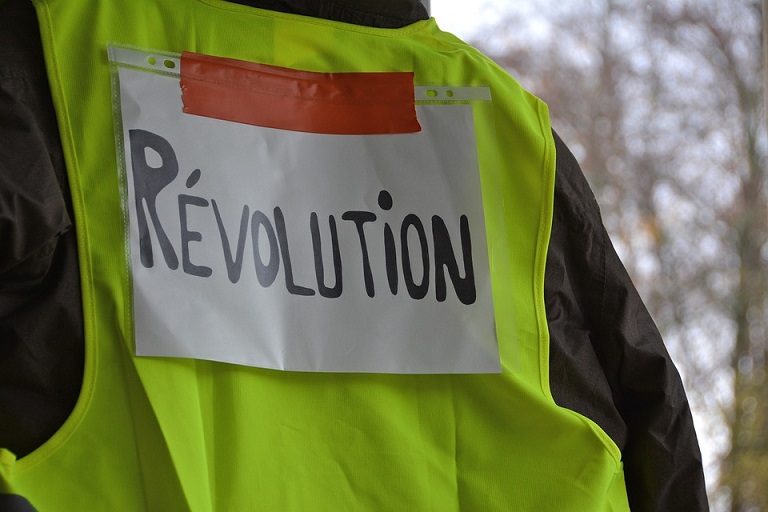Libertarian feeling, the search for a harmonious relationship between spontaneity and organisation, the challenges to finding the right way to “expropriate the expropriators” without causing irreparable damage to the social fabric, finding a way to make social property a reality and emancipate human beings from exploitation by human beings, must be the left’s strategic goals.
 Juan Diego García
Juan Diego García
For the left, it seems essential to reflect on three decisive questions in a strategy for change: the question of power, the real condition of the change’s protagonists and the need for organisation and its necessary link to spontaneity.
Although power is much more than the government, it is the government which grants margins for action that allow sufficient balances of power to be generated to boost important transformations. The left getting into power is only justified when that alternative exists, which happens when the established order collapses and the right, despite retaining the principal levers of power, is incapable of preventing it.
Power resides, above all, in control of the economy, in the monopoly of modern social media, in the corps of civil servants (especially the senior ones) and, of course, in the effective control of the military.
When the left wins elections it achieves a certain predominance in the so-called executive power, although it almost always sees it conditioned by the balance of power in the parliamentary system and in the judiciary, generally closely identified with the social order, that is to say, almost always quite conservative if not openly reactionary.
 As an immediate objective, the left must then seek the greatest possible representation in the executive and legislative powers, and in this way be able to progress as far as is feasible in the reform of the upper echelons of judicial power and the military and police corps, which mostly consist of people from the popular sectors who can help with a reformist politics.
As an immediate objective, the left must then seek the greatest possible representation in the executive and legislative powers, and in this way be able to progress as far as is feasible in the reform of the upper echelons of judicial power and the military and police corps, which mostly consist of people from the popular sectors who can help with a reformist politics.
But undoubtedly the most crucial advance is to strengthen the public role in the economy as much as possible giving the state a decisive role in its control and direction.
It is also important to have as a strategic objective the conversion of public enterprise into a fundamental engine of economic activity.
It is a matter of immediately overcoming the neoliberal model and – in the case of Latin America and the Caribbean – progressing towards an economic order that overcomes the structural deformities the capitalist world order imposes on these periphery countries.
The fact that such objectives are possible while power continues to be in the hands of the traditional dominant class and the bourgeois order is maintained, or on the other hand that it is essential to progress towards radical changes that lead to an essentially different social order, constitutes a big theoretical and practical challenge for the left.
Nowadays the historical agents of change are still the salaried classes and a large section of the small and medium-sized business community (urban and rural), subjected to various forms of exploitation by big business, both foreign and domestic.
 All of which gives these emancipating processes a character of social and national struggle. Hence the necessity to form very broad popular fronts and change programmes that correspond to the sort of class alliances that determine their progressive nature.
All of which gives these emancipating processes a character of social and national struggle. Hence the necessity to form very broad popular fronts and change programmes that correspond to the sort of class alliances that determine their progressive nature.
To the traditional social classes of the capitalist order must be added what is called the “poverty group”, mainly made up of very poor sectors and marginalised people who constitute large parts of the population and who have been a decisive force in getting the left into government.
These are the so-called “nobodies” in Colombia, the people who populate the edges of big cities. They are the ones who do not have a determining role in the working of the economy (a role that corresponds above all to the salaried classes of the so-called formal sector) but are crucial at the ballot box and whose mobilisation could impede the right’s manoeuvres.
In these countries on the periphery of the world system, the left in government faces the dilemma of allocating resources wisely between social expenditure and essential productive investment to satisfy urgent social demands without compromising medium and long-term objectives.
The message must then be directed towards deciding the type of production and the type of consumption as democratically as possible, thinking not just about immediate necessities but also and above all about future objectives.
It is a matter of ensuring the national purpose of a modern and democratic order is accepted by the majority of society.
Salaried people (the traditional and modern proletariat) have their union organisations more or less up to the challenge (they came out victorious in the right’s extermination campaign) while the poor and the marginalised need to strengthen their own organisation to continue to be a decisive factor in the left’s strategies.
 Unionism – as a traditional organisation – must be in harmony with the new ways the spontaneous dynamics express themselves in so many manners with their enormous vigour and freshness.
Unionism – as a traditional organisation – must be in harmony with the new ways the spontaneous dynamics express themselves in so many manners with their enormous vigour and freshness.
Harmonising organisation and spontaneity is a task that appears in practically all change processes, whether reformist or revolutionary, as an overriding necessity.
No less important or urgent for the left is progress in the debate over its own organisation.
That a sort of vanguard is necessary is something that is demanded by the complexity of the current order, highly urbanised and above all with a hegemonic development of capitalist forms.
The left has an exciting challenge in front of it as it must analyse critically the most outstanding forms the vanguard took in the most important revolutions of the last century, with its successes and mistakes, and decide how it must be organised today, basing its judgement above all on the specific national reality.
The left has before it at least two great examples: the socialist revolutions (Russia, China, and with particular emphasis the revolutions in Latin America and the Caribbean) and the European social democratic experience.
 The crisis of these models could help show the Latin American and Caribbean left the right paths (through their achievements and their defects) without forgetting other expressions of socialist thinking which were relevant in their day and which could now have a new and enriching reading.
The crisis of these models could help show the Latin American and Caribbean left the right paths (through their achievements and their defects) without forgetting other expressions of socialist thinking which were relevant in their day and which could now have a new and enriching reading.
A critical reading of its own past as vanguards is for the left an essential exercise for designing today’s narrative and winning over the social majorities to the purpose.
(Translated by Philip Walker – Email: philipwalkertranslation@gmail.com) – Photos: Pixabay












.jpg)












